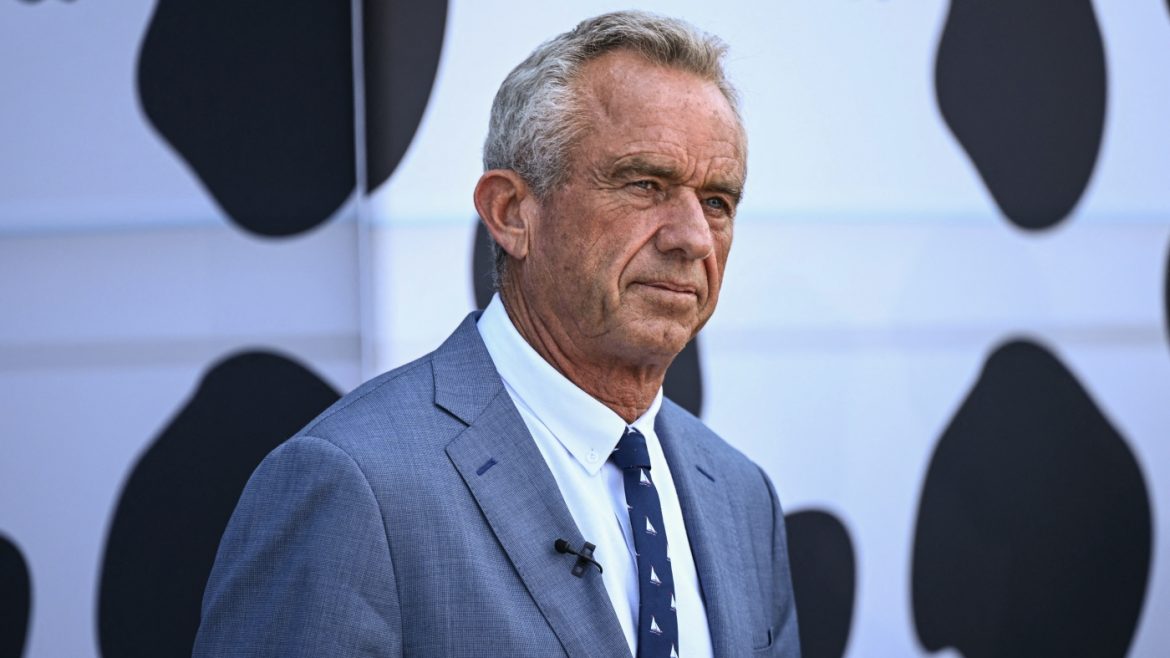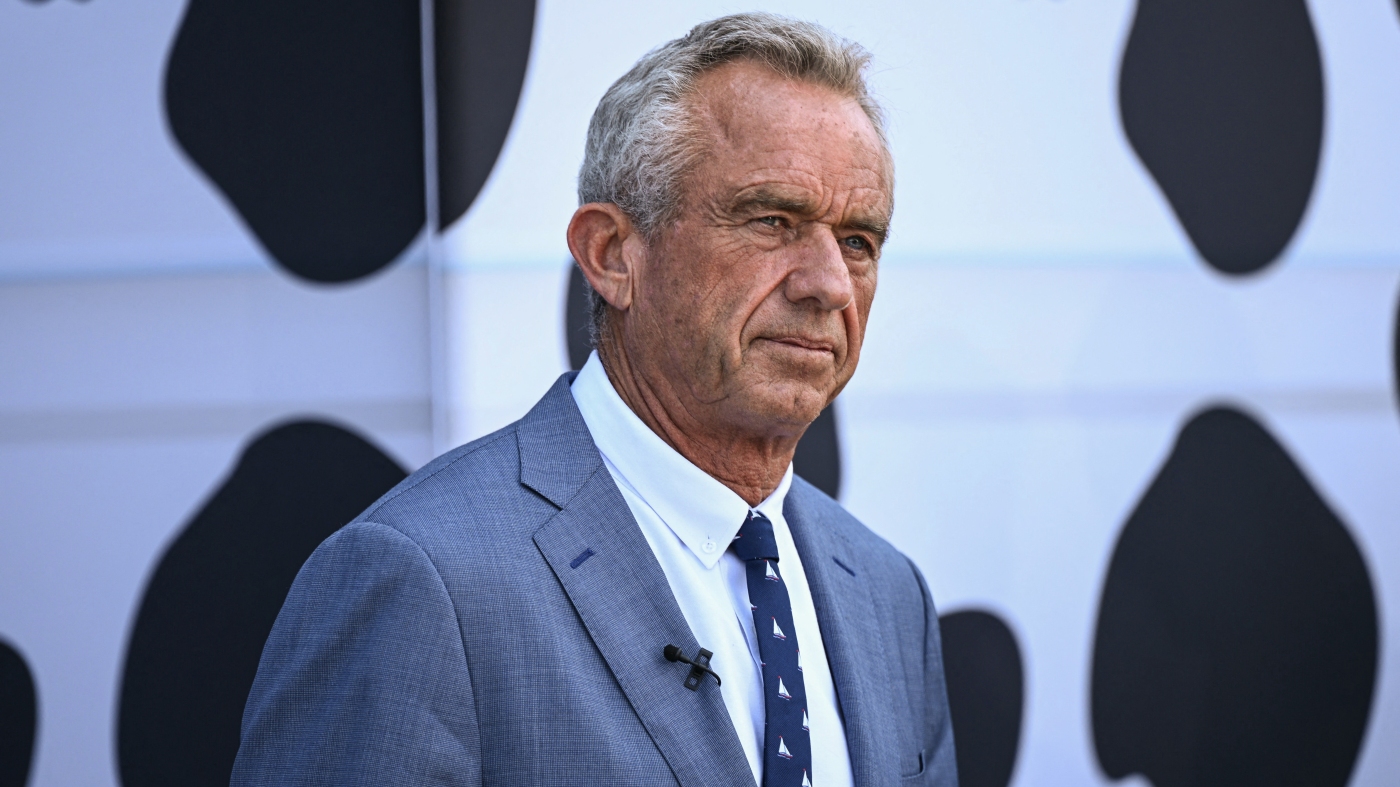The Storm Surrounding RFK Jr. and the Future of American Healthcare
Introduction: A Controversial Figure at the Helm
The appointment of Robert F. Kennedy Jr. as the Secretary of Health and Human Services (HHS) has ignited a firestorm of controversy within the American healthcare landscape. His actions, particularly the dismissal of expert panels and the cancellation of key meetings, have raised serious concerns about the future of preventive care and evidence-based medicine in the United States. This report explores the details of these contentious moves, their potential ramifications, and the broader implications for healthcare policy and public health.
The Preventive Services Task Force: A Pillar Under Siege
The U.S. Preventive Services Task Force (USPSTF) stands as a cornerstone of evidence-based medicine in the United States. Composed of 16 volunteer members, this independent group of experts plays a crucial role in shaping healthcare guidelines. Their recommendations guide which preventive services, such as cancer screenings and vaccinations, should be covered by insurance, impacting the healthcare access of millions of Americans.
Reports indicate that Kennedy is considering removing all members of the USPSTF. This potential overhaul, coupled with the unexplained cancellation of a scheduled USPSTF meeting, has fueled concerns that Kennedy intends to undermine the task force’s scientific integrity and influence its future recommendations. The American Medical Association (AMA) has already voiced its “deep concern” over these developments, urging Kennedy to reconsider any actions that could compromise the USPSTF’s independence and effectiveness.
The ACIP Purge: A Blow to Vaccine Confidence
The concerns surrounding the USPSTF are further amplified by Kennedy’s earlier decision to dismiss all 17 members of the Centers for Disease Control and Prevention’s (CDC) Advisory Committee on Immunization Practices (ACIP). The ACIP is a long-standing body of experts responsible for providing recommendations on vaccine use in the United States. Kennedy’s move to replace the entire committee with a smaller group of handpicked advisors, some of whom have expressed views outside the mainstream scientific consensus, has been widely condemned as a politically motivated attack on evidence-based decision-making.
This unprecedented action has sent shockwaves through the medical community, with physicians and public health experts expressing fears about the potential erosion of trust in vaccines and the safety of immunization programs. The dismissal of the ACIP members has been described as a “war on science,” raising serious questions about Kennedy’s commitment to public health and his willingness to prioritize scientific evidence over personal beliefs.
The Fallout: A Multifaceted Crisis
The potential consequences of Kennedy’s actions are far-reaching, affecting various aspects of healthcare policy and public health.
Undermining Evidence-Based Medicine
The dismissal of expert panels and the cancellation of meetings raise concerns about the politicization of healthcare decisions. If Kennedy is successful in replacing independent experts with individuals who align with his personal views, the recommendations of these panels could become biased and less reliable. This would undermine the principles of evidence-based medicine, which rely on rigorous scientific research and independent evaluation to guide clinical practice.
Eroding Public Trust
Kennedy’s actions have already sparked outrage and distrust among medical professionals and the public. By dismissing respected experts and promoting unproven or disproven theories, he risks further eroding public confidence in healthcare institutions and scientific authority. This could lead to lower vaccination rates, reduced adherence to preventive care guidelines, and ultimately, poorer health outcomes.
Disrupting Healthcare Access
The recommendations of the USPSTF and ACIP directly impact insurance coverage for preventive services. If these panels are compromised, the scope of coverage could be narrowed, making it more difficult for Americans to access essential screenings, vaccinations, and other preventive measures. This would disproportionately affect vulnerable populations, exacerbating existing health disparities.
Legal Challenges and Political Battles
The backlash against Kennedy’s policies has already spilled over into the legal arena. A group of major medical organizations has filed a lawsuit challenging his changes to COVID-19 vaccine recommendations, alleging that they are not based on scientific evidence and could harm public health. This lawsuit represents a significant challenge to Kennedy’s authority and could set a precedent for future legal challenges to his policies.
Fact-Checking Kennedy’s Stance: A Pattern of Misinformation
Robert F. Kennedy Jr.’s nomination as HHS Secretary was met with skepticism due to his long-standing views on health policy, particularly his stance on vaccines. A review of his public statements reveals a pattern of promoting misinformation and unsubstantiated claims, which has further fueled concerns about his ability to lead the nation’s health agenda.
Vaccine Misinformation
Kennedy has been a vocal critic of vaccines for many years, often linking them to autism and other health problems. These claims have been widely debunked by the scientific community, which has conducted numerous studies demonstrating the safety and effectiveness of vaccines. Despite the overwhelming evidence, Kennedy continues to promote these discredited theories, raising concerns that his personal beliefs could influence his policy decisions.
Distrust of Public Health Institutions
Kennedy has also expressed distrust of public health institutions like the CDC and the FDA, accusing them of being influenced by pharmaceutical companies. These accusations undermine public confidence in these vital agencies and could hinder their ability to effectively respond to public health crises.
Alternative Medicine
Kennedy has shown an interest in alternative medicine and has promoted treatments that are not supported by scientific evidence. This raises concerns that he may prioritize unproven remedies over evidence-based medical care, potentially endangering the health of the public.
Calls for Congressional Intervention: Protecting Scientific Integrity
In response to the growing concerns about Kennedy’s actions, healthcare organizations and advocacy groups are urging Congress to intervene. They are calling on lawmakers to protect the integrity of expert panels and ensure that healthcare decisions are based on sound scientific evidence. Some have even suggested legislative action to limit the HHS Secretary’s authority to unilaterally dismiss expert advisors.
Conclusion: A Crossroads for American Healthcare
The unfolding situation with Robert F. Kennedy Jr. at the helm of HHS presents a critical crossroads for American healthcare. Will the nation continue to prioritize evidence-based medicine and scientific expertise, or will it succumb to the influence of misinformation and personal beliefs? The answer to this question will have profound implications for the future of public health and the well-being of generations to come. The coming months will be crucial in determining the direction of healthcare policy and the extent to which scientific integrity will be preserved in the face of political pressure. The storm brewing in healthcare is a call to action, demanding vigilance, advocacy, and a steadfast commitment to the principles that have long guided the nation’s health agenda.


